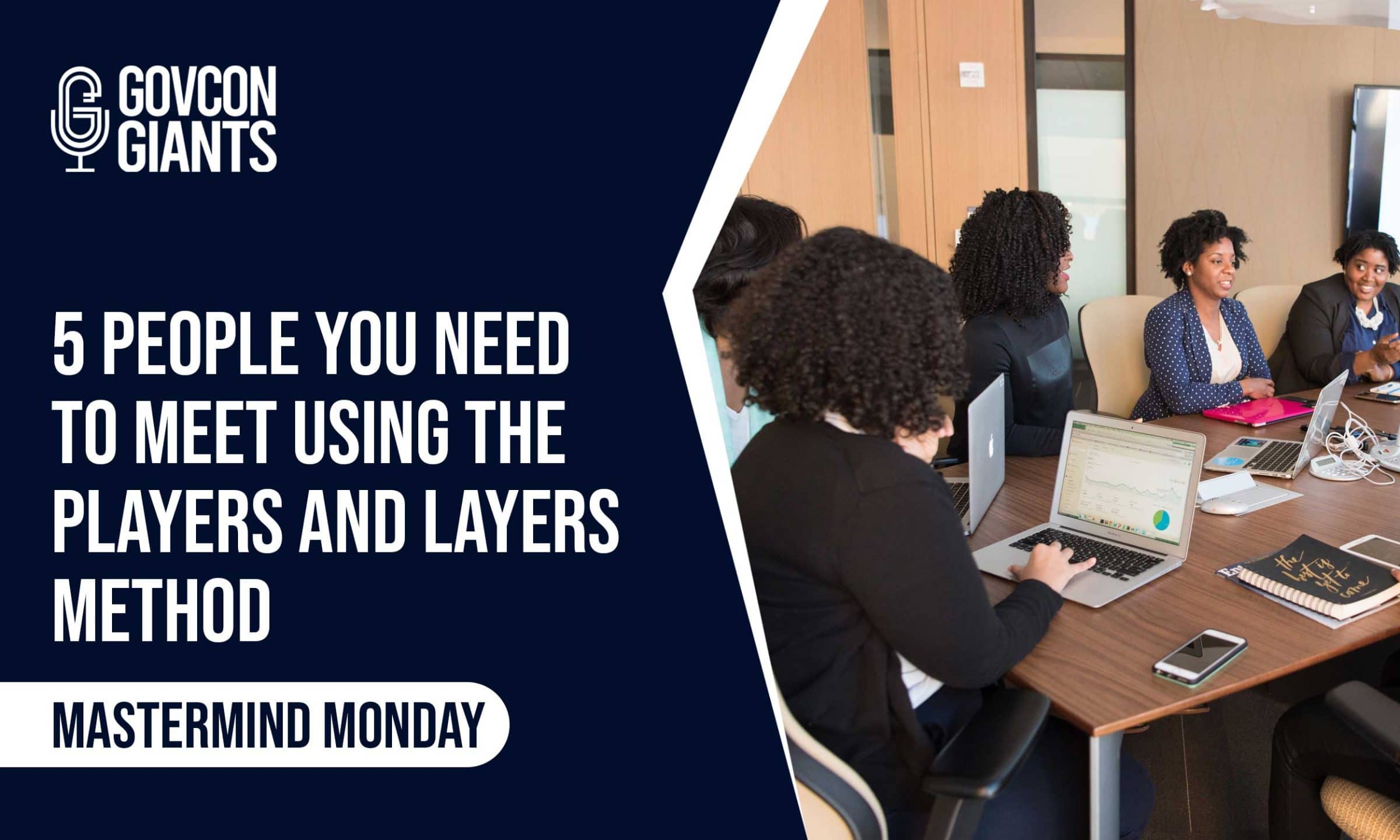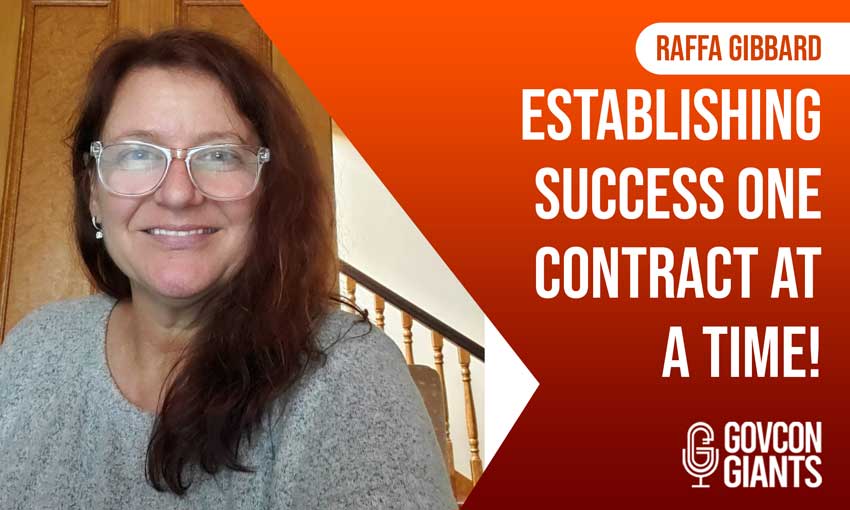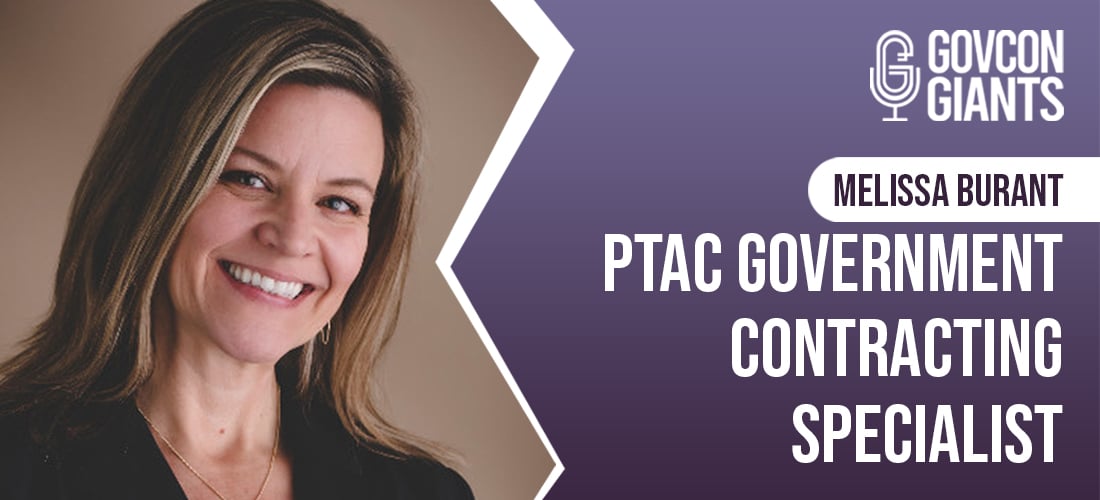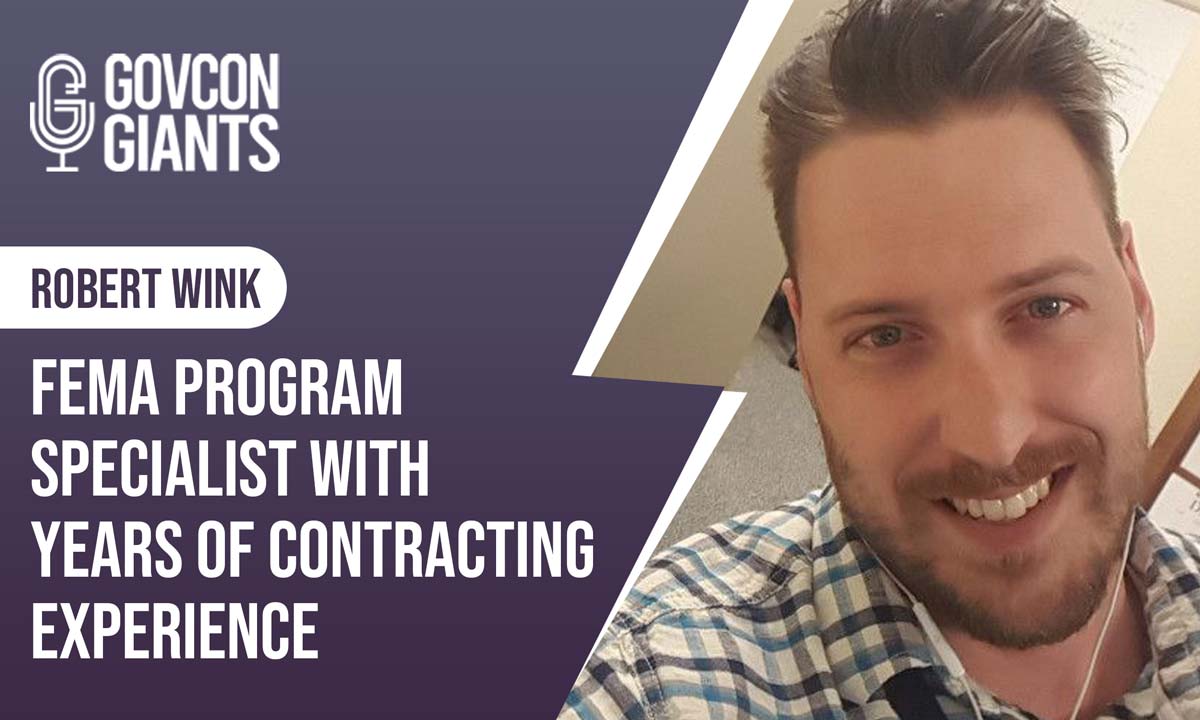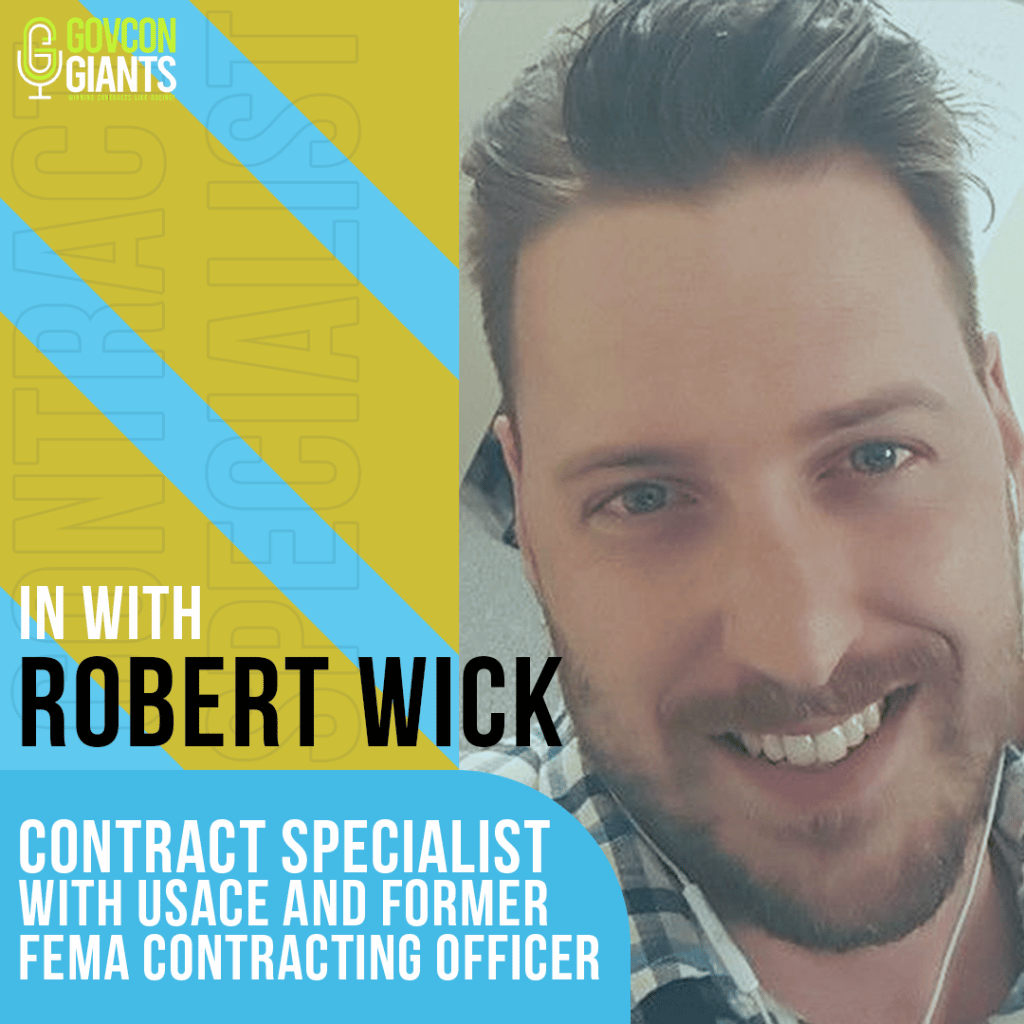Want to get in front of the right people sooner? Learn the Players and Layers Method and start knowing these five people you need to meet!
5 PEOPLE YOU NEED TO MEET
1. Small Business Specialist
These people are the easiest to meet because their responsibilities essentially include talking to industry people.
This is why these small business specialists go to a handful of conferences and are holding different outreach briefings.
Apart from that, they are also the people that require their specific federal agency to reserve contracts for small businesses.
Basically, their job is to meet small businesses and help answer questions about how to do business with that agency and what are the opportunities that these businesses can take advantage of.
2. End Users
End users are the people who are defining the requirements on what are the products or services that will get purchased.
In this case, your end user is not a specific agency, but the people who are making the purchasing decision in that agency.
These people can be their program manager, their facilities manager, or any other individuals who have those long job titles.
In looking for these end users, you can just easily look for their job titles on that federal agency’s employee directory. For others that don’t publish this directory, you can also look for these job titles on LinkedIn.
Just remember that these end users will talk to you with regards to what they need. However, this will not happen if you don’t even want to get to know them and are just asking for bidding opportunities.
3. Primes
Prime contractors can either be your competitor or your competimate.
In most cases, if you are a small business contractor, it is recommended to team up with the huge primes because like the end users, these people need to also meet a certain work percentage for small businesses.
However, if you have been frustrated by large primes who take your paperwork and never call you back, then you might need to stop coming for them asking for a free handout.
Rather, start providing them value on what you can offer and not what you can get from them.
4. Contracting Officer
Contracting officers are the people who have the authority to manage and administer contracts and run competitions.
They have the legal authority to bind your company to the government in an agreement to provide products and services within a specific price and under specific terms and conditions.
However, unlike small business specialists, these people can be hard to reach because they are risk averse.
Consider that they are holding contracts that are worth thousands or millions of dollars, so they are really careful in terms of the acquisition process as one mistake can lead to a lot of things that costs more than it’s worth.
This is why you need to always take your time in building relationships with these people.
5. Stakeholder
Stakeholders are the people who mainly lead a specific government agency.
These people are the ones who make the big speeches at the conference, such as the base commander or the cabinet secretary.
However, they are not your buyer, so you should not talk to these stakeholders asking to be introduced to the specific people buying your products and services.
“They care about your eyes and ears, but don’t beg them to award you things. It doesn’t work that way.”
ADVICE IN USING THE PLAYERS AND LAYERS METHOD
1. Take advantage of these agencies’ strategic plans.
Apart from a forecast list, almost every federal agency also publishes a strategic plan.
These are usually five year plans that highlight the language the agency uses to talk about their missions and their problems, aside from their spending priorities.
So, if you want to learn more about your specific federal buyer, then take advantage of these plans because this will enable you to come into the conversation speaking the language of that agency.
2. Lower these people’s risks.
Under the Federal Acquisition Regulation part 13, contracting officers are encouraged to seek competition and to actively seek out offers from more than one contractor.
However, also consider that these decision-makers have so much on the line when they choose you, so perform the contract flawlessly and make sure that they get the best value.
In fact, even on the market research phase, get their interest by providing your case studies, success stories, and those things that really show how you shine and why you can outperform your competition.
What are those best values? What are those extraordinary things that are quantifiable?
This way, it makes it easier for them to choose you because you’ve been warming them for months on how you can lower their risks and increase their odds of success.
3. Identify the agency needs.
One way to identify your federal buyer’s needs is by looking at past federal contract data which will show you who’s buying products or services similar to yours.
The truth is your federal buyer may have already bought something like your product or service from someone who’s not you.
Now, there are a handful of variables why these agencies didn’t choose you. This might be due to your location, pricing, expertise, among others.
However, instead of focusing on these reasons, why not put yourself in that individual federal human’s shoes and take a look at the people who are already supplying them?
What do you think is the reason that they are doing business with huge companies like Deloitte? What do they find attractive in working with these companies which they can’t find in yours?
Once you find out why, that’s your chance to reconsider your companies’ activities in building relationships with these people.
“These are real human beings. The way you approach them shows them that you’ve taken the time to get to know what’s happening in their world.”
4. Build a contact relationship management system.
When you are considering opportunities where you can bid, it is recommended that you start laying out a contract relationship management system of the people you know.
In building this system, you can just easily use a spreadsheet to list down all of the industry and agency people you know and their website or contact information.
Then, check who among that agency or company you’re missing or haven’t built a relationship with.
You may or may not need to know the stakeholder, but you should know who they are and get a sense of how they’re shaping the needs of the organization.
“You want to make sure that if you’re going to bid something, you know you’ve got a contact, not just in the small business layer, but for sure, at the end user layer and at the contracting layer.”
RESOURCES
If you want to learn more about the players and layers method in order to meet the five key decision-makers above, then check our full Mastermind Monday video with Judy Bradt.
You can also visit the GovCon Giant website or the new GovCon Edu where you learn everything about government contracting!
5 People you need to meet & the Players and Layers Method
https://www.youtube.com/watch?v=xo8_vSnvVVs&t=19s





